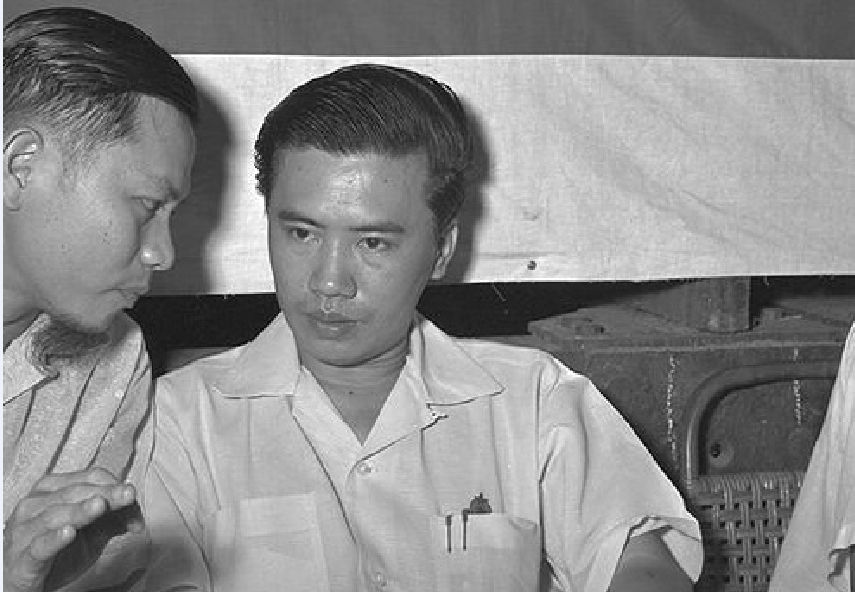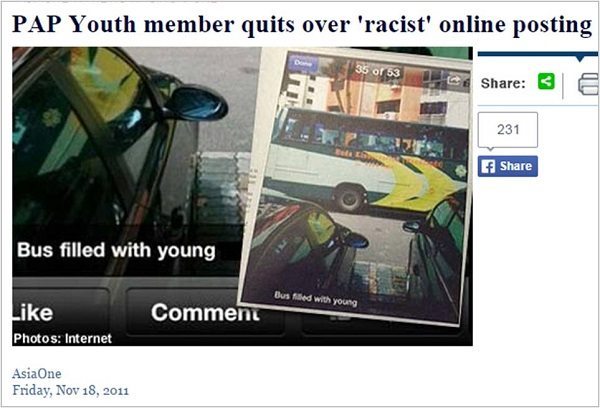By Dr. Thum Ping Tjin
Lim Chin Siong co-founded the People’s Action Party (PAP) in 1954 with Lee Kuan Yew. His intellect, leadership, and legendary oratory skills enabled him to organise the trade union movement and provide the organisational base for the PAP. He effectively championed the cause of the unemployed and the exploited workers of Singapore, and was wildly popular, winning the Bukit Timah constituency in the 1955 elections with an outright majority at the young age of 22. David Marshall recalled that Lee Kuan Yew introduced Lim Chin Siong to him as the person who would be Singapore’s next leader.
However, his promising political career was destroyed when he detained without trial by Lim Yew Hock’s government from 1956 to 1959, then again by Lee Kuan Yew’s government from 1963 to 1969.
For over five decades, the official government narrative of Singapore’s history has justified Lim Chin Siong’s detention by asserting that he was a communist who advocated violence and subversion.
One of the most concrete charges made against Lim Chin Siong was that he allegedly instigated riots on 25 and 26 October 1956. At a PAP-organised rally at Beauty World on 25 October to protest the government arrests of Chinese middle school students and civil society leaders, Lim supposedly worked up the restless crowd by urging them to “pah mata!” (beat the police). For this, he was arrested and detained without trial on 27 October. In the Legislative Assembly, then-Minister for Education Chew Swee Kee said:
“It is significant to note that the Member for Bukit Timah (Lim Chin Siong) at that meeting said that instead of shouting “Merdeka” the people should now shout, “Pah Mata”, which means “Beat the Police”. Is there any doubt whatsoever as to who sparked off the riots?”
Chew alleged that the crowd then drifted down Bukit Timah Road and clashed with police outside Chinese High School, sparking off the riot. This specific charge has since been repeated as fact.
Lim denied the charge all his life. The final occasion where he was recorded making such a denial was in the interview that he gave to Melanie Chew, published in her Leaders of Singapore (1996). Lim Chin Siong died in February of that year.
However, the question of whether Lim Chin Siong had indeed provoked the crowds to beat up the police can finally be settled conclusively. A transcript of Lim’s speech, recorded and translated into English by the Singapore Police, has been unearthed in the National Archives of the UK. Far from urging violence, Lim used humour to defuse the tension in the audience, and reminded them that the police were also employees and did not deserve their anger.
Background: State-sanctioned violence and repression in Singapore
After the Malayan Emergency was declared in 1948, Singapore was turned into a virtual police state where most forms of legitimate political activity were banned, where people could be searched, detained, and tortured for no reason, and the state routinely used repression and violence as tools of governance.
Preparing for decolonisation, in 1955 the British introduced a constitution which gave Singapore partial self-government. The new Chief Minister, David Marshall, revoked the Emergency Regulations and replaced them with the new but similar Preservation of Public Security Ordinance (PPSO). However, Marshall strove to ensure that the Ordinance was applied fairly. When some labour activists were arrested in June 1955, the labour unions erupted in protests. Marshall pledged they would be brought to trial or released as soon as possible, and he was as good as his word. All but one was soon released. The last was tried in open court and found guilty of possessing proscribed documents.
This was a massive change from the previous eight years. Freed from fear of arbitrary violence and arrest, civil society activity took off, and Singapore politics became dynamic and vibrant. This alarmed the British. Since they had great difficulty finding evidence that the anti-colonial activities were illegal, they assumed anything which opposed them was subversive.
Marshall resigned in June 1956, when the British rejected his demand for complete internal self-government. Lim Yew Hock, who succeeded him as Chief Minister, was less principled. The British also put pressure on Lim Yew Hock, telling him that if he wanted progress on Singapore’s independence, he had to bring Singapore’s civil society under control.
The October 1956 riots
Lim Yew Hock and Special Branch formulated plans to dissolve various organisations which had been very active in anti-colonial activity. On 18 September 1956, the Chief Minister used the PPSO to dissolve several organisations and detained seven people, mostly from Chinese middle schools. This was greeted with massive public anger as a step backward from the freedoms enjoyed under Marshall, and an attack on the freedom of the people of Singapore. To the shock of Lim and the British, public anger was so strong that a Civil Rights Convention was quickly formed, bringing together not only a broad swath of organisations that transcended ideology, class, and ethnicity. Left and right-wing groups, Malay, Chinese, and Indian organisations, and white and blue collar trade unions all came together. Inadvertently, Lim Yew Hock was on the verge of creating a genuinely multiracial anti-colonial national front with himself as the common enemy.
To nip this in the bud, Lim sanctioned more and more rounds of arrests. Public anger mounted. By late October 1956, Singapore was a simmering cauldron of anger.
Meanwhile, the opposition PAP had been holding meetings to protest the detentions. At a meeting on 25 October 1956, at which Lee Kuan Yew, Toh Chin Chye and Devan Nair were present, Lim Chin Siong gave the speech as shown in the transcripts attached below. He reminded the audience that their target was Lim Yew Hock and the colonial masters of Singapore, not the police, who were only employees. The official transcript made by the police recorded:
“With regard to police… they are all wage-earners and they are all here to attend this meeting to oppose Lim Yew Hock. (Loudest cheers of the meeting so far) We gladly welcome them, and the more of them that attend will make us even stronger. (crowd cheers wildly) A lot of people don’t want to shout Merdeka! They want to shout “pah mata”. This is wrong. We want to ask them to cooperate with us because they are also wage-earners and so that in the time of crisis they will take their guns and run away. (Laughter and cheers).”
However, public anger was too strong. That same night, police and protestors clashed outside Chinese High School, and a riot broke out. It raged into the early morning. That morning, the police launched tear gas into Chinese High and Chung Cheng High Schools to clear out student protestors conducting a sit-in, and riots broke out again. This continued through the day.
Detention without trial
Lim Chin Siong was detained on 27 October. His speech formed a major part of the government’s explanation for the detention. In a cabinet meeting, the Council of Ministers resolved to bring Lim Chin Siong to trial if sufficient evidence could be found to convict him. However, he was never brought to trial, which suggests that Lim was innocent of the charges.
When Chew Swee Kee made his allegation in the Legislative Assembly, Lee Kuan Yew did not refute it. Subsequent accounts of the events, including John Drysdale’s Singapore: Struggle For Success; and Dennis Bloodworth’s The Tiger and the Trojan Horse, and most recently, Men in White by Sonny Yap, Richard Lim, and Leong Weng Kam (2009) all include the assertion that Lim’s speech incited the audience to violence.
The text of Lim’s speech has been unearthed from the Singapore Special Branch files recently declassified by the National Archives of the UK. We now know that the government deliberately misrepresented Lim Chin Siong’s speech. The Special Branch files show that Lim was framed. After the PAP came into power, it did not provide the opportunity for Lim to clear his name either.
Likewise, recent academic work (see here) has also proven that Lim’s later arrest and detention in 1963 was politically motivated. The Singapore government has never had any evidence that Lim was part of a communist conspiracy. Nor has any evidence been produced for hundreds of other political detainees who were detained under the PPSO and its successor, the Internal Security Act. Declassified Special Branch files reveal that they were merely engaged in legitimate political activities to bring freedom and independence to Singapore. Most were arrested simply because Special Branch was unable to tell the difference between peaceful constitutional anti-colonial struggle and communist subversion. In November 1956 alone, 163 people were preventatively detained – in other words, there was no evidence against them, but they were arrested just in case they were communist.
It remains an open question if any of the detentions over the last sixty years were justified. The Internal Security Act remains in operation today. To ensure that this Act has been used appropriately and responsibly, an open Commission of Inquiry into the detentions of Singapore’s political detainees is needed to set the facts straight once and for all. Only by learning the truth of our own collective past can we learn and grow as a nation.
LimChinSiong_speech






